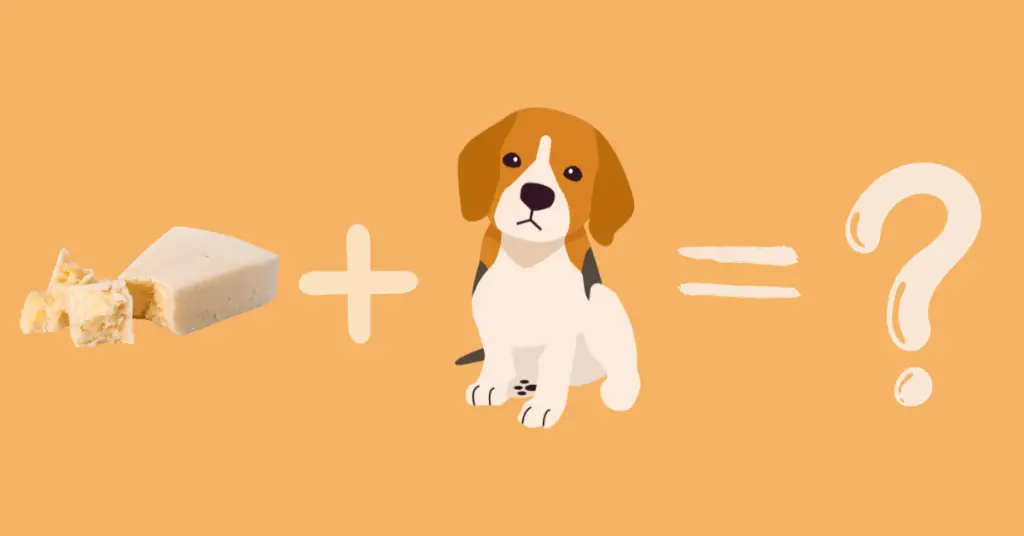
When it comes to our furry friends, it’s only natural to want to share some of our favorite treats with them. Parmesan cheese is undeniably delicious, and many of us wonder if our dogs can enjoy it too. In this article, we’ll dive into the world of dogs and Parmesan cheese, answering your burning questions along the way.
What is Parmesan Cheese?
Parmesan cheese, often referred to as Parmigiano-Reggiano, is a hard, granular cheese originating from Italy. It’s renowned for its distinct, robust flavor and is commonly used in various culinary dishes around the world. The cheese is typically made from cow’s milk and undergoes a precise and traditional production process.
Can dogs eat Parmesan Cheese?
Absolutely, dogs can eat Parmesan cheese, but it’s essential to exercise caution and moderation. Parmesan cheese is generally safe for dogs in small amounts and can even be a tasty treat for them. It’s a dairy product, so it contains protein and calcium, which can be beneficial for their health. However, some dogs may have lactose sensitivity, making it harder for them to digest dairy products. Additionally, Parmesan cheese is relatively high in fat and sodium
Is Parmesan Cheese Safe for Dogs?
You may be wondering, “Can dogs safely consume Parmesan cheese?” The answer is affirmative, yet there are crucial points to consider.
The Good News
Protein-Packed Delight: Parmesan cheese is a dairy product, and it does contain protein, which can be beneficial for dogs.
Calcium Boost: It’s also a source of calcium, which is essential for strong bones and teeth.
Tasty Incentive: Some dogs are picky eaters, and a sprinkle of Parmesan cheese can entice them to eat their meals.
The Not-So-Good News
Lactose Sensitivity: Many dogs are lactose intolerant, which means they have difficulty digesting lactose, a sugar found in dairy products. Parmesan cheese, like other cheeses, contains lactose.
High in Fat: Parmesan cheese is relatively high in fat, which can lead to weight gain and digestive issues in dogs if consumed in excess.
Sodium Concerns: Excessive sodium intake can be harmful to dogs, and Parmesan cheese is salty. Too much salt can lead to sodium ion poisoning in dogs.
Dogs and Parmesan Cheese: Is It a Good Match?
Now that we know Parmesan cheese is safe in moderation, let’s explore whether it’s a good choice for your furry companion.
Taste Test
Mixed Reactions: Dogs’ reactions to Parmesan cheese can vary. Some pups adore its pungent aroma and cheesy flavor, while others may not show much interest.
Portion Control
Watch the Amount: It’s essential to offer Parmesan cheese in small quantities as an occasional treat, not a regular part of their diet.
Consider Size: Smaller dogs should receive even tinier portions due to their size and metabolism.
How Much Parmesan Cheese Is Okay?
So, how much Parmesan cheese can you give your dog without worry? Here’s a handy guideline:
Small Dogs: For petite pooches, a mere pinch of grated Parmesan cheese is sufficient.
Medium to Large Dogs: A slightly larger pinch, around a teaspoon or two, should suffice.
Remember that these are general recommendations and that every dog is unique.
It’s always a good practice to seek advice from your veterinarian before incorporating any new foods into your dog’s diet, particularly if they have pre-existing health conditions.
Is Parmesan Good for Dogs’ Health?

Aside from the taste factor, is Parmesan cheese beneficial for dogs? Let’s weigh the pros and cons:
The Pros
- Protein and Calcium: As mentioned earlier, Parmesan cheese provides a protein and calcium boost.
- Treat Motivation: Using Parmesan as a reward can be a helpful training tool.
The Cons
- Calories and Fat: It’s calorie-dense and high in fat, so overindulgence can lead to weight problems.
- Digestive Upset: Dogs with lactose intolerance may experience digestive discomfort.
Recipes for Homemade Parmesan Cheese Treats
For the crafty dog owners out there, making homemade Parmesan cheese dog treats can be a fun and wholesome endeavor. Here’s a simple recipe:
Ingredients
- 1 cup whole wheat flour
- 1/2 cup grated Parmesan cheese
- 1/2 cup unsalted chicken broth
Instructions
- Preheat your oven to 350°F (175°C).
- Mix the flour and Parmesan cheese together in a bowl.
- Gradually add the chicken broth and stir until you have a firm dough.
- Flatten the dough on a surface lightly dusted with flour, and use cookie cutters to create delightful shapes.
- Place the treats on a baking sheet and bake for about 20 minutes or until they’re golden brown.
- Allow the treats to cool before offering them to your dog as an occasional snack.
Safe Alternative of Parmesan Cheese:
When it comes to finding safe cheese alternatives for dogs, there are a few options that can be enjoyed by our furry friends without causing harm. One popular choice is cottage cheese, which is high in protein and calcium, making it a nutritious option. Just ensure it’s plain and unsalted, without any added sugars.
Another safe alternative is plain yogurt, as long as it doesn’t contain any artificial sweeteners or added flavors. Yogurt can provide probiotics that aid digestion and promote gut health in dogs.
Additionally, you can consider giving your dog small amounts of hard, low-lactose cheese like cheddar or mozzarella. These cheeses have lower lactose content compared to softer cheeses.
Always introduce any new foods to your dog in moderation and observe for any signs of allergic reactions or digestive issues. It’s best to consult your veterinarian before adding new foods to your dog’s diet to ensure they are safe and suitable for your pet.
Related Questions
Can I put parmesan cheese on dog food?
Certainly, you can put Parmesan cheese on your dog’s food, but it should be done in moderation. Parmesan cheese can be a tasty addition to your dog’s meal and may entice them to eat. However, it’s important to keep the amount small. Too much cheese can lead to digestive issues and excess intake of fat and sodium, which isn’t healthy for dogs. Begin by lightly sprinkling a small amount and monitor your dog’s response closely. If they enjoy it and don’t experience any adverse effects, you can continue to use it as an occasional treat.
Is parmesan cheese easy to digest?
Parmesan cheese is relatively easy to digest for most dogs, especially compared to softer, high-lactose cheeses. Due to its hard and granular texture, it can be more manageable for a dog’s digestive system. However, it’s still crucial to offer it in small quantities and monitor your dog’s response to ensure it agrees with their stomach and doesn’t cause any gastrointestinal issues.
Conclusion: Balancing Treats and Health
In the grand scheme of things, Parmesan cheese can be a safe and enjoyable occasional treat for your dog. Just remember the key points:
- Moderation is key.
- Watch for any adverse reactions.
- If you have any uncertainties or concerns, it’s always best to reach out to your veterinarian for guidance.
So, the next time you’re enjoying a plate of pasta topped with Parmesan, you can share a small sprinkle with your canine companion, knowing you’re both indulging in a tasty moment together. Just remember to keep it in check, and you’ll have a happy, healthy pup by your side.

Thank you for your sharing. I am worried that I lack creative ideas. It is your article that makes me full of hope. Thank you. But, I have a question, can you help me?